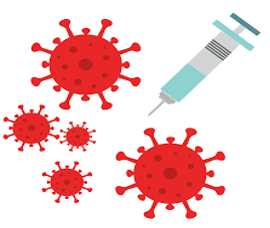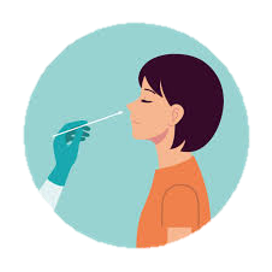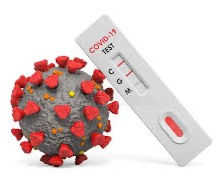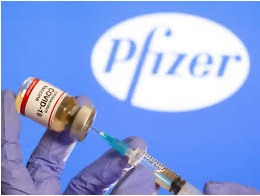COVID-19: How the tests and vaccines work
- Aaliyah Mohseni
- Feb 2, 2021
- 4 min read

The school has transferred back to online and the COVID-19 cases soaring here in Portugal and globally. The world is in chaos and we are hoping and relying on effective vaccines and accurate testing to pull us through. Many of us are familiar with some of the different vaccines and tests, but how do they work and are they actually effective?
COVID-19 Tests
There are several types of tests you can get to test for COVID-19, the most popular being: PCR, antigen and antibody.
PCR
PCR stands for polymerase chain reaction, what may be familiar to some of our DP students. This is a laboratory technique that looks to replicate specific DNA samples. Now first a swab collects cells from the patients nose or mouth to get to the back of the throat. Dr. Rodino explains this is because "An upper respiratory specimen, particularly a nasopharyngeal swab, is the most common sample collected to reliably detect the virus".

The RNA in the sample is isolated and then combined with DNA polymerase and reverse transcriptase, free nucleotides, probes and primers that recognize and bind to SARS-CoV-2, etc.
This results in the RNA converting to DNA and replicating billions of copies of the sample so it can be easily detected.
Click here for more detail
Antigen
The antigen test doesn’t look for genetic material, but for molecules (or antigens) on the virus’s surface. This test is fast and can be done in a lab in approximately 15 minutes. Unfortunately, there is quite a bit of inaccuracy in antigen testing. The FDA states that positive tests are often accurate however high hances of false negatives. So, if the test says you are not infected it may be wrong. However, this method of screening could be used widely as it is relatively cheap and fast and by just reducing the number of people with COVID-19 in a public space such as in schools or work the infection rate could decrease.
To learn more, click here.

Antibody
As suggested in the name, this test screens for antibodies what are produced by the body to fight COVID-19. The test is taken by taking a small amount of blood, likely through a pin prick on the finger. The blood is added to a device that then looks for 2 different types of antibodies what can be present in the body a long while (inconclusive exactly how long). Most people only have recognizable antibodies 14 days after symptoms according to WebMD. This means that this test is more popularly used for telling if you once had COVID-19.
Click here for more information
When to take a test?
As much as it would be fabulous to instantly know whether you have Covid-19 or not, this is not the case. According to MIT Medical the probability of a false negative is very high the shorter amount of time you have it, this varies dependent on the individual and test. That is why someone could test negative and isolate for two weeks and the be tested negative. MIT Medical also suggested that the average optimum time to get a test is 5-7 days after exposure.
COVID-19 Vaccines
Like the tests for COVID-19, there are various vaccines that are being released to combat COVID.
Pfizer Vaccine

The Pfizer vaccine could be revolutionary as it doesn’t work the way most vaccines do, containing remanence of the targeted virus. Instead, Pfizer works using your own body. The patient receives mRNA what codes for the spike protein of COVID-19 (the part that attaches to our cells). It is injected into the muscle of the upper arm where the mRNA protected in an oily shell fuse on to contacted cells. There the mRNA enters the cell and is translated to make spike proteins. When the cell dies the body can take up the spikes and produce antibodies against the spikes. That way if the virus enters the body there will immediately be a defense against it.
Currently there are 2 doses of the Pfizer Vaccine per person, 21 days apart. Like most vaccines there are possible side effects, usually flu like symptoms, but there are also allergic reactions so ensure that you compare the ingredients to your allergens.
Click here to learn more about how Pfizer works.
Click here for some information on more vaccines
When and who takes the vaccine?
Currently Portugal and any other countries have created a priority list to who will receive the vaccine first.
(Jan-Feb) 1: people age 50+ with a high-risk disease, nursing homes residents, long-term care units and their professionals, health professionals and essential services
2: people age 65+, people age 50+ with diabetes, cancer, liver and kidney failure, obesity and hypertension
3: If goes to plan, the rest of the population
Click here for a very informative page on this topic
After going through the struggles that COVID-19 has imposed for almost a year we all hope that it will be over soon. Tests and vaccines will be part of this, so it is important to be educated on the topic as well as how to stay and keep others safe.
Work Cited





Comments